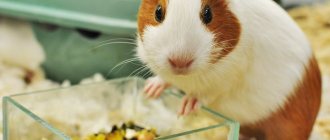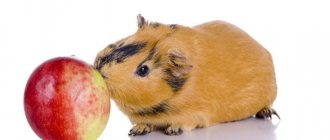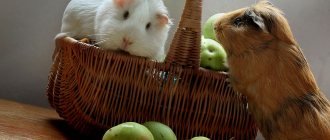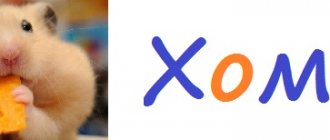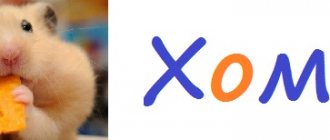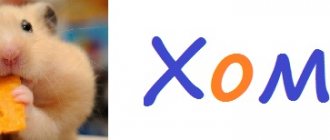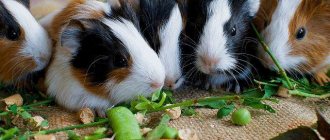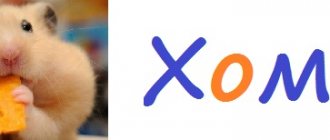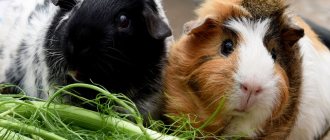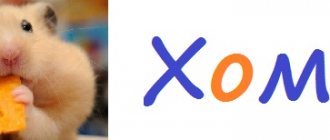Animals require vitamins for full, harmonious development and growth, for good body resistance to many diseases. The guinea pig is no exception in this matter. If animals living in their natural environment independently take care of finding useful substances for themselves, then pets have to rely on the owner for this. If a rodent's body does not have sufficient quantities of certain substances, its health condition may deteriorate significantly, and various diseases may develop, including serious ones, including growth retardation or infertility. All this can be avoided if all the necessary elements are present in your pet’s diet. The most important among them, vitally important, is ascorbic acid or vitamin C.
Vitamin C
If the animal lives in nature, its body has a special enzyme that is responsible for converting glucose into vitamin C. If the guinea pig is a pet, then it does not have this enzyme. That is, a pet cannot produce ascorbic acid on its own.
In this regard, the owner must constantly ensure that the animal’s diet is structured in such a way that there is enough of this vitamin in the food, and also give it additional preparations containing the vitamin. If there is not enough ascorbic acid, the animal may develop scurvy and other serious diseases that can even cause death.
It is necessary to ensure that the guinea pig receives a sufficient amount of vitamins year-round. In the spring-summer season, this may include eating fresh foods. Among them: vegetables, fruits, salads and herbs.
In winter, you can buy special preparations and add them to the feed, or buy specialized fortified feed. It is also worth mentioning in advance that there are certain groups of animals that need increased consumption of vitamins all year round. They can be added to food regardless of the time of year. These are baby guinea pigs, pregnant and lactating females, animals during illness and immediately after it.
Types of feed
For the full development of a guinea pig, a complete, balanced diet is necessary. A balanced feed must contain the required proportions of all important components, minerals and trace elements. Since a rodent needs the right combination of proteins, fats and carbohydrates, minerals and other components, several foods should be selected at once, because None of the existing types of food include all the nutrients.
To organize proper nutrition for a guinea pig, you need to imagine what this furry animal eats in captivity. It is also worth adhering to a certain daily norm so as not to overfeed and thereby harm the animal.
If feeding measures are not followed, this can lead to mumps disease and problems with the gastrointestinal tract. In some cases, unbalanced nutrition leads to the death of the animal. That is why it is important to adhere to the chosen diet and daily feeding regimen.
All types of food that you purchase in markets or stores must be sifted, washed and dried before serving to the rodent. Guinea pigs enjoy eating plant foods. For example, in the summer it can be vegetables and herbs, and in the winter it can be succulent, roughage.
The following types of feed exist:
- Greens are an important part of the diet. Such feeds have a low cost and a high percentage of nutrients. They include: - cereal herbs; — meadow (stinging nettle, dandelion, medicinal plantain); — greens and vegetables (Brussels sprouts, broccoli, lettuce); - protein mixtures: legumes or legumes-cereals;
- Juicy feed. Add to the diet during the cold season - autumn, winter. These foods include root vegetables. They have a high content of quickly digestible carbohydrates, but a low content of proteins and fats. A common succulent food is various varieties of carrots. It is especially useful for females during the period of bearing cubs and the lactation period, for young litters and males. As food, rodents excellently consume: beets, potatoes, turnips, zucchini, rutabaga, cucumber, tomato, turnips;
- Roughage. Pigs are added to the menu in winter. These are mainly legumes and cereals, dried clover and nettles. Vitamin hay is very useful for lactating females and young litters. Swamp hay should not be given to rodents.
- Cereals. Consist of oats, barley, soybeans and sunflowers. In the general menu, grain feed makes up 30%.
It is not advisable to feed rodents with one type of food presented. In summer, the rodent's menu includes greens, in winter - vitamins, hay and root vegetables.
Specialized vitamin components include:
- Fish fat. Contains vitamins A, D. Daily intake 1.5 g;
- Salt. Young animals are given 0.5 g per day, adults 2 g;
- Ascorbic acid. Rodents especially need vitamins in winter and autumn. Every day, 15 mg of vitamin C should be added to the pig’s menu, first mixed with water. An alternative are foods high in vitamin C, such as lemon, apples, sauerkraut, carrots, red and black currants;
- Milk. Before serving it to the animal, it must be boiled and cooled. You should not give your pigs milk that has spoiled, has an unpleasant odor or is contaminated. Milk should be included in the rodents' diet every day. Adults are given 20 grams of milk, young ones – 10 grams per day.
The most important component in a pig's diet is clean water. In the absence of drinking water, rodents can get sick. In the summer, when there is a lot of greens and grass on the menu, guinea pigs practically do not need to drink. But, nevertheless, the water in the drinking bowls should be changed every day, especially if there is a pregnant female in the cage. When feeding grains and dry food, guinea pigs are given a drink before eating.
What foods contain a lot of vitamin C?
Ascorbic acid is found in a lot of foods. To ensure that your rodent has enough ascorbic acid, do not forget to give him broccoli and other types of cabbage, basil, raspberry, burdock and nettle leaves, kiwi, currant branches, mint, bell pepper and tomato, dandelion, fennel, branches of coniferous plants, apples. But it is important to provide products that are grown far from highways, roads and enterprises. You also need to be sure that they were not treated with any chemicals. It is best to produce fruits and plants from your own garden, since in industrial production it is rarely possible to do without chemicals, and they can be detrimental to the health of a guinea pig.
If you give all these products in sufficient quantities to the rodent, you will not need to use additional drugs. Even in winter, you can grow greens on the windowsill or use apples, cabbage and other vegetables and fruits harvested in the fall. If you do not have this opportunity, you will have to resort to synthetic vitamin supplements.
Pigs' diet
Rodents need to be fed twice a day at certain times. Pregnant females are fed 4 times a day. The amount of food should be sufficient so that the animal does not go hungry between breaks.
To maintain good health, guinea pigs eat their own droppings. Young individuals eat their mother's droppings so that the microflora is formed correctly.
You should not suddenly change your pigs' food; you should introduce new supplements slowly.
The daily diet of rodents (winter/spring) includes:
- vegetables – 0.09 kg;
- hay – 0.01 kg;
- potatoes – 0.03 kg;
- white bread – 0.03 kg;
- oats – 0.04 kg;
- milk – 0.025 kg.
Ascorbic acid in ampoules
In winter, the amount of nutrients in the diet decreases sharply, so it is necessary to strengthen the health of the rodent with the help of synthetic drugs. It is easier to use vitamin C in liquid form; it is sold in ampoules and is a five percent solution. It is easier to give than powder or tablets, which additionally need to be diluted in water. There is no need to dilute the vitamin in the ampoule; it is ready for use. A guinea pig needs 0.5 ml per day. They can be administered carefully using an insulin syringe without a needle.
Delicious additives
Juicy fruits are taken as tasty additives for rodents, namely:
- Sweet apples. Rodents love them very much in any form. Apple fruits contain fiber, pectin, vitamin B, and carotene. Green fruits contain much less vitamins compared to ripe apples. You should not give your pig spoiled or rotten apples, as this can lead to gastrointestinal upset. The affected areas should be cut out and the fruit should be washed well under running cold water.
- Strawberries. Contains a large amount of nutrients: vitamins E, C, A, iron, phosphorus, calcium. Small animals like red berries; they increase appetite and have a positive effect on digestion. In addition, strawberries have a diuretic effect.
How to Give Vitamin C to a Guinea Pig
The daily norm for an animal is 0.5 ml. But this is an average value and is only suitable for a healthy adult. To calculate the dosage more accurately, you need to know the norm for healthy and sick animals. For the former it is 10-30 mg per kilogram, for the latter – 30-50 mg. Giving more vitamins than prescribed is also not worth it, since an overabundance can also undermine your health.
If everything is clear with the intake of vitamins along with food, then how to introduce synthetic drugs into the diet. You can give an ascorbic acid tablet as a separate treat. If the animal is accustomed to sour taste, the taste of the tablet will seem absolutely normal to it. If you purchase the vitamin in powder form, you can mix it with the food. The form in the ampoule is forced into the root of the tongue.
Fish fat
If there is a nutrient that modern diets (outside of a handful) cannot achieve in sufficient quantities
people who eat a lot of fatty fish) is fish oil.
Fish oil is the hottest supplement today, and companies are investing a lot of money in research, so the research base has accumulated large. Omega-3 fatty acids normalize metabolism, protect the heart, help fats oxidize more vigorously, and help control inflammation. It's easier to list what fish oil doesn't do.
If you cannot or do not want to eat fatty fish (salmon, mackerel, herring, etc.) up to 5 times a week, then try taking fish oil supplements, choosing companies that ensure high-quality purification of heavy metals from it.
Flaxseed oil is commonly suggested as an omega-3 alternative to fish oil. However, the body's conversion of flaxseed omega-3 into EPA/DHA is very inefficient in most people. In addition, flaxseed oil oxidizes very quickly and becomes almost harmful. The average recommendation for athletes for EPA / DHA is 1.8-3.0 g per day.
Abuse of synthetic vitamins
Vitamin C is vital for guinea pigs, but it is preferable to give it in organic form, that is, in food. If you neglect these rules and give pharmaceutical drugs all year round instead of fruits and vegetables, the animal may develop a malignant tumor. The reason is that synthetics are not processed by the body and accumulate in it. The solution is to make taking medications an exclusively seasonal occurrence and try to meet your vitamin needs as much as possible through foods.
What does vitamin C deficiency lead to?
Vitamin C deficiency
usually does not occur suddenly, but if for some reason this happens, then the person may get
scurvy
. This is a serious disease during which blood vessels become brittle, multiple subcutaneous hemorrhages occur, gums begin to bleed, teeth become loose and fall out. Today they have learned to treat scurvy because they have learned the cause of the disease, but just a few centuries ago thousands of people died from scurvy, mostly sailors who went on long journeys with a meager supply of provisions.
And although scurvy is more of a relic of the past, modern people also suffer from vitamin C deficiency and the consequences of this deficiency, and often do not suspect it. Hypovitaminosis
It manifests itself gradually, and its symptoms are easy to simply overlook or chalk up to fatigue. If there is a deficiency of ascorbic acid in the body, the skin becomes dull and dry, any injuries and cuts are accompanied by heavy bleeding, as the walls of the blood vessels become thin. Even after rest, a person feels tired and exhausted, the amount of hair loss and brittle nails increases noticeably. Similar symptoms may be characteristic of a number of other diseases, but you also need to remember about a possible vitamin C deficiency.
Choosing a “winter” formula
Before taking preventive courses, it is recommended to take tests and visit a doctor.
- "Aevit" restores the central nervous system, helps with hair loss, and restores hormonal levels.
- "Gerimaks" increases performance, helps cope with stress and gives a surge of strength due to the ginseng included in its composition.
- "Multi-Tabs Immuno Plus" contains probiotics that normalize microflora and form protection against ARVI.
- “Alphabet” includes three servings of components necessary for the body.
- "Vitrum" is a remedy for restoring the body after illness.
- "Complivit" is a balanced complex for everyone.
- Hypoallergenic NutriBiotic is designed specifically for athletes.
- Natrol Iron Free Multivitamins contain 22 ingredients.
Vitamins for children:
- Complex from SmartyPants with folic acid, Omega-3, A, C, E, B, D.
- Yummi Bears for the harmonious development of a child.
Calcium
Calcium deficiency is a very common thing, especially in people who refuse dairy products (and it is fashionable to refuse dairy products these days).
Calcium is fundamentally important for women. Women are much more likely than men to suffer from osteoporosis during menopause. Therefore, you should start taking care of your bone health as early as possible. And calcium is not just about teeth, bones and nails - it plays an important role in muscle contraction, that is, during any movement. Without calcium, muscle movement is basically impossible, so the body has a large storage area for it - bones. When there is a calcium deficiency in food, “bone” calcium is used.
The minimum daily dose of calcium is 1000 mg in a highly digestible form (citrate, malate).
If you want to get all your calcium from dairy products, then note that 100 grams of cottage cheese contains 120-150 mg of calcium. That is, even 3 standard packs of cottage cheese per day do not replenish the calcium requirement. Hard cheeses contain the most calcium (600-1200 mg), but due to their fat content, cheeses cannot be considered as the main source of calcium.
Health problems due to lack of vitamins
A lack of even one vitamin can cause disruption of the body's systems:
- A - sleep patterns are disrupted, immunity decreases, and vision deteriorates.
- C - joint pain, bleeding gums, drowsiness are possible.
- D - bone strength decreases, immune function is impaired.
- E - hair weakens, cognitive abilities deteriorate, the central nervous system suffers.
- B1 and B6 - irritability appears, carbohydrate metabolism is disrupted.
- B12 - aging processes accelerate, oxidative processes intensify, and constant fatigue occurs.
What does the body lack in winter?
To maintain the functioning of organs, a person needs to receive nutrients in the required quantities every day. When the balance is disturbed, the endocrine and nervous systems suffer, metabolism is disrupted, and cell formation slows down.
Vitamins are fat- and water-soluble. Fat-soluble (A, K, E, D) are consumed in the body gradually, they can accumulate. The supply of water-soluble (B, C) compounds must be replenished regularly.
The need for folic acid, vitamins C, E, and group B increases with increased physical activity. To slow down oxidation processes and strengthen the immune system, it is recommended to take vitamin supplements during the cold season.
Zinc and magnesium
People who exercise or diet are often deficient in magnesium and zinc:
- zinc - for those who refuse red meat;
- magnesium - for those who do strength training, because its losses increase with heavy training.
Both minerals are very important for the body. Additionally, some studies show that combining zinc and magnesium at night helps with sleep and recovery.
On average, the daily intake of zinc is 25 mg (the preferred form is picolinate), magnesium is 400-500 mg (citrate is the best form for absorption, while the oxide is most often seen on sale).
These are the supplements I most often prescribe in my consultations.
As for self-prescribing dietary supplements, it is not recommended to do this without diagnosis and consultation with a specialist.
Remember about such a condition as hypervitaminosis - an excess of vitamins in the diet is dangerous, just like their deficiency, many vitamins have a toxic effect on the body, and without appropriate tests we cannot diagnose ourselves with a lack of a particular vitamin.
Immunity is a way of protecting the body from the action of various substances and organisms that cause destruction of its cells and tissues, characterized by a change in the functional activity of predominantly immunocytes in order to maintain homeostasis of the internal environment.
Simply put, this is our main defense against diseases and viruses.
Immunity can be congenital or acquired. And if we can no longer influence innate immunity (what we received with mother’s milk) in adulthood, then we must maintain acquired immunity throughout our lives.
Of course, there is no universal drug for everyone. Immunity is a complex system and very individual; we cannot guess by eye which link in the chain is the most vulnerable. Therefore, I don’t think any specialist would risk taking a risk and prescribing a universal magic pill.
Your health is based, first of all, on a healthy lifestyle, proper, balanced nutrition, and giving up bad habits. These are the basics that need to be promoted to the masses, and not some specific miracle drug, vitamin or supplement.
In my practice, there have often been cases of negative effects of vitamins when used independently; most often this is expressed by allergic reactions in the form of rashes, itching and swelling. It is very important to competently and carefully collect anamnesis from the patient in order to determine whether this is really a reaction to the drug or whether these are symptoms of a food allergy.
Thus, vitamins and dietary supplements can and should be taken, keeping an eye on the toxicity of large dosages of vitamins and only under the guidance of specialists. But the best option would be to diversify your diet with natural foods and try to get vitamins from them.
Course intake of vitamins in winter
Taking any drug should not exceed 1 month. It is important to maintain intervals. To avoid addiction, you can alternate between different formulas. Fat-soluble compounds should not be taken in high dosages; an overdose can cause harm to the body.
Residents of Russia often have a vitamin D deficiency. Nutritionists recommend adjusting the dosage of medications after taking tests. To prevent a deficiency of important components, it is important to adhere to proper nutrition and include frozen fruits and greens in your diet. Vitamin supplements can be used in courses when there is a decrease in performance, loss of strength, or apathy.
Multicomplexes or monopreparations
Vitamins C, E, D can be taken daily to eliminate deficiency. You can make up for the lack of components by adhering to certain strategies. The first is to take medications in courses of 10-14 days. Example: “Aevit” - vitamin D, group B - “Milgamma” during the cold season. With a monotonous diet and intense training, you can choose the second method. For example, take complexes that contain several elements. They may include additional components to regulate the gastrointestinal tract, stabilize the central nervous system, and increase tone.
Symptoms and consequences of deficiency
Vitamin C deficiency can be suspected by external signs and changes in health status. A deficiency is indicated by bruises appearing on the body for no reason, the appearance of chronic fatigue and depressive mood. The lack of this substance provokes the appearance of muscle and joint pain, as well as bone aches. Vitamin C deficiency is reflected in dry skin, swelling and excess weight. A long-term lack of the active compound provokes a decrease in the body's defenses. A person begins to get colds often. Deficiency leads to decreased concentration. Children suffering from a lack of vitamin C are at high risk of abnormal skeletal development.
